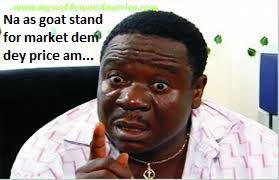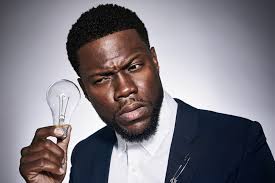Mental health has long been a taboo subject in many African communities, where cultural stigmas and societal taboos often silence conversations around emotional well-being. However, in recent years, there has been a gradual shift, with African comedians playing a pivotal role in normalizing the discourse around mental health. Through humor, satire, and personal narratives, comedians are helping to break down the barriers surrounding mental health, offering a new, more open space for Africans to address and discuss their emotional and psychological well-being.
- The Power of Laughter in Addressing Mental Health
- African Comedians Who Are Leading the Conversation
- How Social Media Is Amplifying Mental Health Conversations
- Comedy’s Role in De-Stigmatizing Therapy and Counseling
- Comedy as a Tool for Empathy and Understanding
- Challenges in the Comedy-Mental Health Space
The Power of Laughter in Addressing Mental Health
Comedy has always been a powerful tool for discussing sensitive issues. By using humor, African comedians make tough topics more approachable, enabling people to reflect on their experiences without feeling overwhelmed. Comedy allows for a more relaxed and open environment to discuss things that would typically be considered difficult, and mental health is no exception.
Through comedy, comedians can present complex mental health issues—such as depression, anxiety, and stress—in a way that feels less intimidating. The comedic approach often serves as a form of therapy, making it easier for audiences to acknowledge their struggles. By laughing at their own pain or misfortune, African comedians invite their audiences to do the same, challenging long-standing cultural beliefs that equate emotional vulnerability with weakness.
African Comedians Who Are Leading the Conversation
A number of African comedians are at the forefront of this mental health revolution, using their platforms to create awareness, share personal experiences, and encourage open dialogue.
1. Trevor Noah (South Africa)
As one of the most internationally recognized African comedians, Trevor Noah has openly addressed mental health on various occasions. He has discussed his experiences growing up during apartheid, where mental health was often overlooked, and how he uses humor to cope with the trauma and anxiety that came from his difficult childhood. In his memoir Born a Crime, Noah reflects on how humor played a crucial role in his survival. On The Daily Show, Noah often weaves his personal struggles into the fabric of his comedy, providing a voice for people dealing with similar challenges.
2. Basketmouth (Nigeria)
Nigerian comedian Basketmouth, known for his observational humor, has also explored mental health in his comedy. Through his stand-up specials and interviews, he has addressed the importance of emotional well-being, acknowledging that many people in Africa suffer in silence due to societal pressures. His humor opens up critical conversations about stress, anxiety, and how social expectations contribute to mental health struggles. By tackling these issues in a humorous way, Basketmouth helps reduce the stigma that often surrounds discussions of mental health.
3. Thuli Thabethe (South Africa)
Thuli Thabethe, a South African comedian and actress, has been vocal about her struggles with mental health, including anxiety and depression. Her openness on social media and in her comedy shows about the impact of mental illness has resonated with many young people in Africa. She uses humor to explain her experiences, making mental health discussions feel less daunting and more relatable for her audience.
How Social Media Is Amplifying Mental Health Conversations
Social media has been a game-changer in how mental health discussions are framed and consumed in Africa. With comedians posting relatable, humorous content on platforms like Instagram, Twitter, and TikTok, the barriers to discussing mental health are breaking down in real-time. Social media gives African comedians the space to create viral content that challenges misconceptions about mental illness.
The rise of TikTok, in particular, has allowed African comedians to create quick, digestible, and relatable videos that speak directly to their audiences. This platform’s format allows comedians to express complex emotions, such as anxiety or depression, in a way that is both humorous and educational. By using trends, memes, and relatable situations, comedians are subtly introducing their audiences to mental health issues while keeping the content light-hearted and engaging.
Comedy’s Role in De-Stigmatizing Therapy and Counseling
In many African cultures, therapy and counseling are still viewed with suspicion, as people often see them as a sign of weakness or a last resort for those who have “lost their minds.” Comedians are changing this perception by normalizing visits to therapists in their routines and showing that mental health care is as important as physical health care. Through humor, comedians highlight the benefits of seeking help without it feeling shameful or abnormal.
For example, comedians like Chibuzor Nelson, a Nigerian stand-up comedian, have used humor to promote the idea of seeking professional help for mental health issues. He often jokes about his own therapy sessions and portrays them as life-affirming rather than embarrassing. By doing so, he makes therapy feel like a positive, beneficial experience rather than something to hide.
Comedy as a Tool for Empathy and Understanding
Another significant impact of comedy on mental health discussions in Africa is its ability to foster empathy. Comedians often use personal anecdotes about their struggles with mental health to create a sense of shared experience among their audiences. This encourages people to reflect on their own lives and challenges, which may lead to a greater understanding of their mental well-being.
Example: Nigerian comedian Ayodeji Makun, known as AY, has spoken publicly about his experiences with depression and how he uses humor to cope. His openness allows fans who may be experiencing similar struggles to feel less alone and more inclined to seek help.
Challenges in the Comedy-Mental Health Space
Despite the positive changes that African comedians are making, challenges remain. While humor can be a great tool for broaching sensitive topics, it can also be misused if not approached carefully. Some people might find jokes about mental illness to be offensive or insensitive, especially if the humor trivializes the severity of the issue.
Another challenge is the ongoing stigma surrounding mental health in many African communities. In some cases, people may not take mental health seriously and see comedians who discuss the subject as merely seeking attention. This stigma can prevent some individuals from opening up about their struggles, despite the positive messages being spread through comedy.
Comedy is undeniably changing the way mental health is talked about in Africa, bringing attention to an issue that has long been swept under the rug. Through humor, African comedians are breaking down the cultural barriers surrounding mental health, creating a space where vulnerability is no longer seen as a weakness. By making these conversations more relatable and less intimidating, comedians are helping to de-stigmatize therapy and mental illness, and encouraging people to seek help when needed.
As the African comedy scene continues to grow and evolve, so too will the role comedy plays in advancing mental health awareness. In 2024 and beyond, we can expect comedians to remain at the forefront of the movement to make mental health care more accessible, normal, and accepted across the continent.
If you or someone you know is struggling with mental health, don’t be afraid to seek help. Whether it’s through therapy, counseling, or simply opening up to a friend, it’s important to know that mental health is just as important as physical health. Keep supporting comedians who bring awareness to mental health—laughter truly is the best medicine!




















